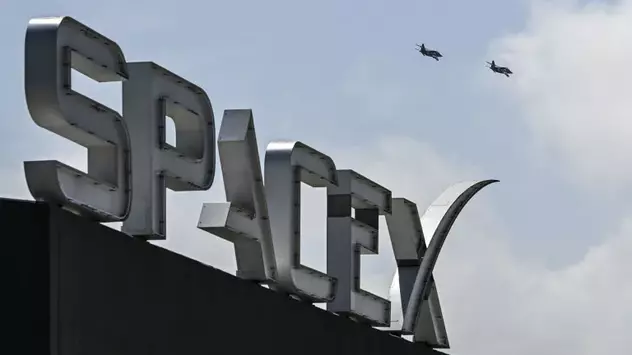
SpaceX’s Starbase Officially Becomes a City After Landmark Vote
Wondering whether SpaceX’s Starbase is officially a city now? Yes — after a historic vote, residents around SpaceX’s Starbase launch site in southern Texas have overwhelmingly voted to incorporate as an official city, now known as Starbase, Texas. This major step further cements Elon Musk’s ambitions to create a futuristic hub dedicated to space exploration and innovation. With 212 votes in favor and just six against, the results show strong support among the local community, largely composed of SpaceX employees and contractors living and working near the launch site.
Creating the city of Starbase is more than just a symbolic move — it represents a strategic shift. SpaceX has already been managing local infrastructure like roads, utilities, education, and healthcare for the area. By incorporating as a city, Starbase can now take full control of municipal services, bypassing Cameron County’s authority. This autonomy could allow SpaceX to better control access to critical launch sites, including Boca Chica Beach and nearby state parks, by closing them during test flights and rocket launches — a long-standing goal of the company.
SpaceX's new control aligns with broader plans to increase launch frequencies and possibly house future Mars colonization training programs. Elon Musk’s focus on creating a "gateway to Mars" makes the legal structure of Starbase even more crucial.
During the same election, residents also voted for their first city officials — all closely tied to SpaceX. Bobby Peden will serve as the inaugural mayor, with Jordan Buss and Jenna Petrzelka elected as city commissioners. All three candidates ran unopposed, highlighting a community deeply aligned with Musk’s vision. These officials are expected to work hand-in-hand with SpaceX leadership to build a thriving, high-tech city supporting rocket launches, astronaut training, and advanced aerospace research.
After the vote, the official X (formerly Twitter) account for Starbase posted:
"Becoming a city will help us continue building the best community possible for the men and women building the future of humanity’s place in space."
SpaceX has been relatively quiet about the exact reasons for pursuing cityhood. However, experts suggest that legal incorporation helps the company manage real estate development, zoning laws, and regulatory hurdles more efficiently. It also streamlines SpaceX’s efforts to enhance security around launch operations, ensuring that critical missions — especially Starship launches to Mars — face minimal external disruption.
Additionally, becoming a city may allow SpaceX to create specialized districts for aerospace manufacturing, scientific research, and employee housing — potentially increasing property values and attracting high-tech workers seeking lucrative careers in aerospace engineering, robotics, and AI development.
Elon Musk’s dream goes beyond just building rockets — he envisions Starbase as the launchpad for humanity’s expansion into the solar system. Musk has already relocated SpaceX's headquarters from El Segundo, California to Starbase, citing increasing safety concerns and regulatory frustrations in California.
In a candid post, Musk explained that dealing with "gangs of violent drug addicts" in California had become unbearable, and a controversial bill restricting schools from sharing student gender information without consent was "the final straw." Texas, with its business-friendly environment and looser regulations, now hosts not only SpaceX’s cutting-edge facilities but also Tesla's Gigafactory and Boring Company projects.
With Starbase’s official status, Musk can now drive forward projects like interplanetary transport systems, rapid point-to-point Earth travel, and even advanced AI spaceflight controls, all while minimizing government interference.
Now that Starbase is officially a city, significant developments are expected. Potential next steps include:
Expanding residential housing for SpaceX employees and their families
Developing new R&D centers focused on Mars colonization technologies
Enhancing launch infrastructure for faster, safer space missions
Creating exclusive tourism experiences tied to rocket launches and Mars simulations
Attracting investments in space tech, AI, renewable energy, and satellite communications
The move could also attract high-paying tech jobs and space tourism ventures, both of which carry strong potential for driving local economic growth.
𝗦𝗲𝗺𝗮𝘀𝗼𝗰𝗶𝗮𝗹 𝗶𝘀 𝘄𝗵𝗲𝗿𝗲 𝗿𝗲𝗮𝗹 𝗽𝗲𝗼𝗽𝗹𝗲 𝗰𝗼𝗻𝗻𝗲𝗰𝘁, 𝗴𝗿𝗼𝘄, 𝗮𝗻𝗱 𝗯𝗲𝗹𝗼𝗻𝗴. We’re more than just a social platform — from jobs and blogs to events and daily chats, we bring people and ideas together in one simple, meaningful space.